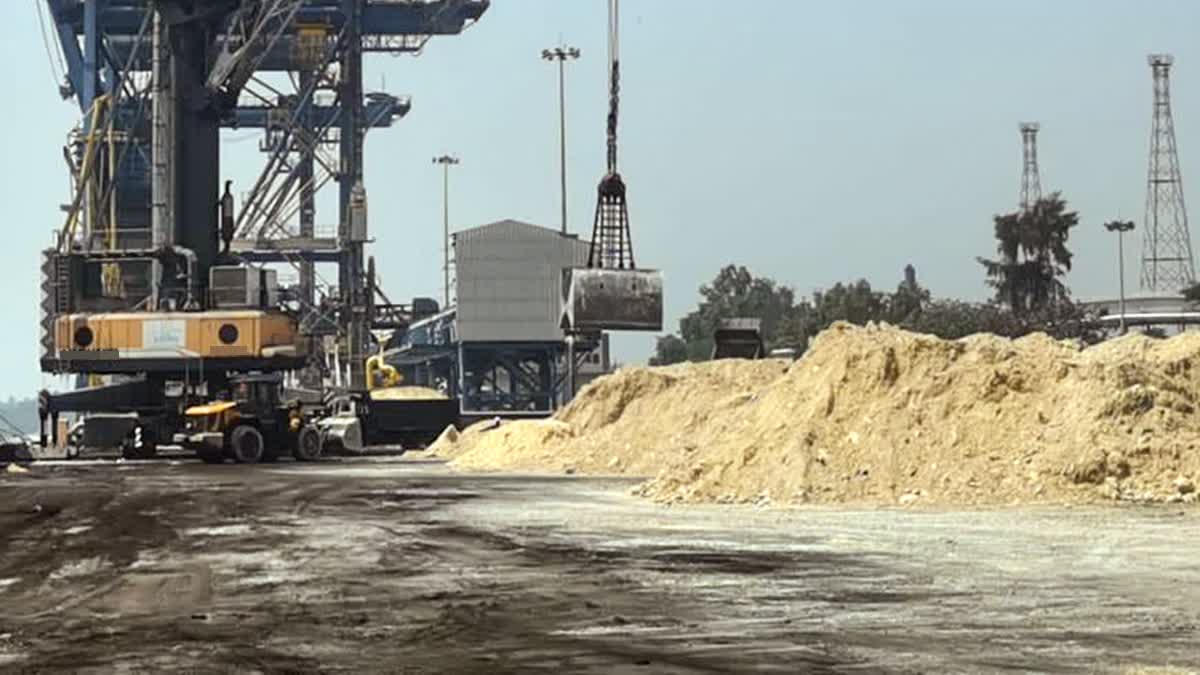Srinagar: Rampant flouting of environmental laws by the gypsum extracting companies in the Kashmir valley have prompted the Jammu and Kashmir government to impose huge fines as directions by the National Green Tribunal woke up the UT administration.
Around 14 gypsum mining factories are extracting gypsum in Uri tehsil in Baramulla district of northern Kashmir. Of them five are running without environmental clearance and extracting gypsum above the consented quantity.
As per the reports of the Jammu and Kashmir Pollution Control Committee these five mining factories did not apply to the J&K Environment lmpact Assessment Authority (JKEIAA) for the revalidation of environmental clearance and carried out the mining operation illegally without having environmental clearance from the Competent Authority.
“The modus operandi adopted by Project Proponent (Mining factories) for extraction of mining is in violation of section 25|26 of the water (Prevention and control of Pollution) Act, 1974 and section 21 of the Air (Prevention and control of Pollution) Act, 1981 and Environmental (Protection) Act, 1986,” the PCC report says.
The report said that the mining companies are liable for compensation for damaging the environment, besides prosecution proceedings under Section 17 of Environment (Protection) Act, 1986.
Following the rampant extraction, the National Green Tribunal (NGT) took note of the environmental degradation in Uri area and directed the JKPCC take appropriate action against these defaulting mines. The PCC woke up and imposed Environmental Compensation after “following the Principles of 'Natural Justice'.”
As per the Pollution Control Committee, four gypsum mining units are without consent and in some cases consent to operate has expired and not renewed thereafter by the unit holders.
“In 5 cases, the extraction made by the unit holders is in excess of the quantity consented by the J&K Pollution control Committee in the consent order,” the report says.
The PCC constituted a Technical Advisory Committee which imposed environmental compensation upon the defaulting units for flouting laws and extracting gypsum more than the consented quantity. In one case the consented quantity was 4000 Metric Tons, but the gypsum extracted was more than one lakh MT. “Almost all the units are violating the consented quantity norm and extracting minerals more than they are permitted,” it reads.
Locals and politicians are fuming at factories and the officials for creating havoc to the environment in Uri and allege a nexus between the owners and the officials.
“The gypsum is extracted inside the Lachipora Wildlife Sanctuary. One kilometre away from Lachipora wildlife sanctuary but the extraction is being done just two hundred meters away from the sanctuary,” Naveed Bukhtiyar, a social activist and lawyer from Uri told ETV Bharat.
Dr Sajjad Shafi, the legislator from Uri said he is not against gypsum mining as the units help in creating employment but the factories should be located away from the residential areas.
“One gypsum unit is located just 100 yards away from a school, a health center and close to the residential area. This unit was closed after complaints but it was re-permitted to operate,” Dr Sajjad told ETV Bharat.
He said that the units which have approved mining plan, environmental clearance and other permissions should be allowed to function as they create employment and are a source for cement and Plaster of Paris manufacturing.
While the locals accuse the gypsum units of causing pollution and degrading the environment, the unit holders argue they operate within laws and follow due permission.
They claim that they give employment to locals in Uri besides helping in providing material source for manufacturing of PoP.
Manzoor Ilahie, a PoP manufacturer, said that since March this year, several gypsum units have been closed by the authorities for violation of laws, but the closure has hit the production of PoP.
As per the Jammu and Kashmir Minerals Limited, the JK government owned company, the gypsum deposits are found in Buniyar in Baramulla, Parlanka area of Ramban and Assar in Doda districts. J&K Minerals Limited is mining gypsum from Assar mine while the other mines have been leased out to private companies.
Official sources said gypsum production has increased from 10,000 to 52,000 metric tons per month and is further expected to increase in upcoming years as more gypsum blocks will be leased out.
“The revenue generation has increased upto Rs 60 crore,” sources told ETV Bharat.
Sources said that the Jammu and Kashmir government’s Geology and Mining department has identified more than 8,500 million tonnes mineral resources like limestone, gypsum, coal and others and granted lease of 384 minor mineral blocks to more than 65 private and public sector companies which led to a quantum jump in revenue generation from previous years.
“The average revenue figures from leases, royalty of minerals would remain Rs 50 crore but since the e-auctioning and single window clearance system the revenue collection has gone up to Rs 150 crores,” the sources said.
Environmental experts say that the mineral extraction of sand, gravel, gypsum in the fragile Kashmir valley is exposing it to a severe ecological crisis which is visible as the climate change is now hitting our rain and snowfall patterns.
“The authorities must implement checks and balances on the mining to save Kashmir from severe climate change patterns,” Gowhar Nabi, a scholar of Environmental Science, told ETV Bharat.
Read more:



